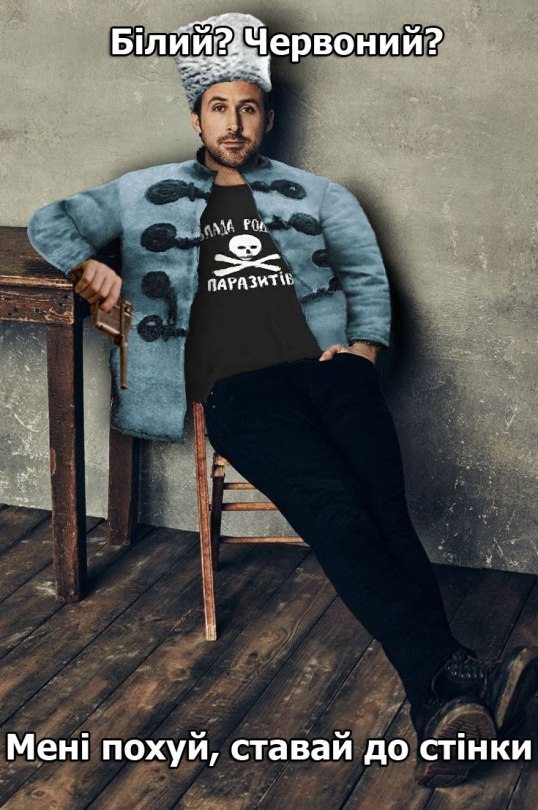#makhno
Text
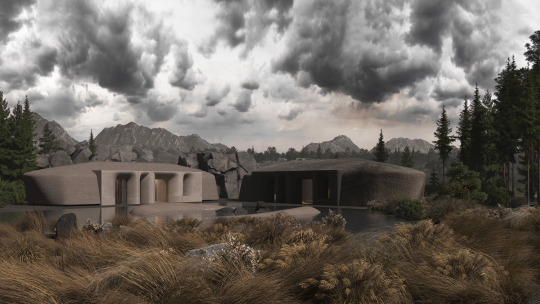









"Gnizdo" Houses, Makhno Village Resort, Ukraine,
© MAKHNO Studio
#art#design#architecture#boutique hotel#travels#interior design#luxury hotel#luxury lifestyle#interiors#luxury hotels#gnizdo#makhno#resort#concept#render#nature#retreat#ukraine#eco-lodge#eco conscious#cave#sculpture
32 notes
·
View notes
Text

(Esp) ¡Muerte a todos los que se interponen en el camino de la libertad para el pueblo trabajador!
(Eng) Death to all those who stand in the way of freedom for working people!
(українська) Смерть усім, хто стоїть на заваді свободи трудового народу!
87 notes
·
View notes
Text
Newsreel footage shows a city that had just been liberated by the Revolutionary Insurgent Army of Ukraine led by Nestor Makhno. Spring 1919.
#nestor makhno#socialism#communism#marxism#anarchism#makhno#russian civil war#russia#ukraine#anarchist#russian revolution#october revolution#soviet
2 notes
·
View notes
Text
Interview: VR Sex, “Rough Dimension”
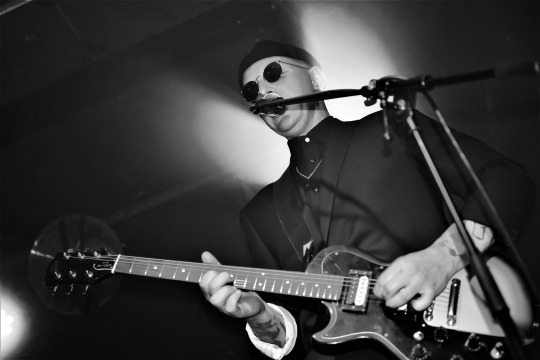
VR Sex performing at La Makhno, through my Nikon.
I’ve been following and listening to Andrew Clinco’s (aka Noel Skum) project VR Sex for a while, so I was very happy to hear about their show at La Makhno in Geneva on January 25th. I think that industrial and dark venue fit VR Sex’s sound perfectly; the show was a lot of fun and the band got everyone dancing. It seemed as if we had time-travelled back to 1981, in a good way.
Before the show, I met with Andrew backstage for an interview about VR Sex’s latest record Rough Dimension. He also tells me about his life in L.A. and the delusion of the American dream, especially in Hollywood.
Many thanks to Andrew and Matt from Roosevelt Records for making this possible!
What’s a regular day like in your life when you’re not touring?
Andrew Clinco: A regular day typically involves waking up fairly early. It depends on the time of the year, but when it’s warm outside in Los Angeles I like to go for a run. I have a membership at the pool as well. I love swimming, it’s my new favorite thing. So I do that in the morning and throughout the day I’m either dealing with band things or business stuff, until 3 or 4 p.m. I have a little home studio and I am always trying to record or write something. And if I can’t do that, I’m just obsessively cleaning my house because if my place is not clean, I can’t really work. I’m OCD about that kind of shit. I’m very grateful I can pretty much get by through music now.
I’m so happy for you! And besides the OCD part, your life sounds pretty healthy.
Thank you. I’m equal parts healthy and unhealthy. I do both healthy and unhealthy things. I dont’ know if it’s a good balance, but it’s a balance.
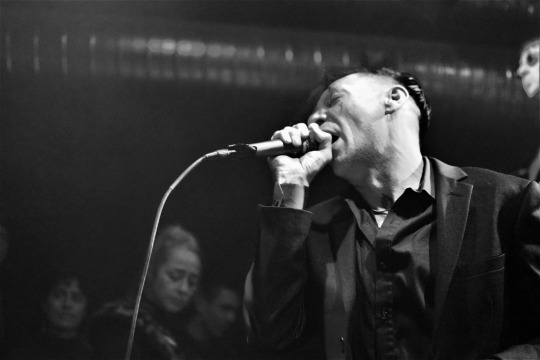
Let’s talk a bit about your new record Rough Dimension. Before I even listened to it, the cover art struck me. It’s very dark and I think it matches the tone of the album perfectly. Was it your idea?
Absolutely! Initially the idea was to have two middle-aged men in business suits having this horrible moment where they’re consoling each other. So I hired these two male models but the shots didn’t work out, it actually looked like the band had two people in it. […] So I worked with my friend Nedda Afsari, who goes by MutedFawn on Instagram. She has done a lot of record covers, she’s a very talented photographer. We walked around in grimy locations in Los Angeles with these two subjects. We had the guy walk underneath this highway bridge. I liked the way the walls met in different dimensional angles. And then I had him stand in this fixed position. Do you know what a dunce cap is? If you got in trouble at school, they would put a hat on you and make you stand in a corner. So the idea was that this white American business man was being punished.

The cover art for the album Rough Dimension.
About the dimensional angles - Rough dimension is also a play on words because if you say for example ‘build me a shelf’, I will reply “Can you give me the rough dimensions of the shelf?” Meaning the rough measurments. So that photo ended up describing the album more than anything else. It was shot on film.
I wanted to talk about the song and the music video for Walk of fame as well. There are two characters, Jesse Christmas aka Clark Nova and Angelyne, who was a popular singer, model and actress in Los Angeles during the 1980’s. I thought the music video really fit the lyrics of the song. Is it conveying the ‘dark side’ of Los Angeles?
The person dressed as Jesus and a rock guy wanted to be featured in the video as a rock and roll guy, because it’s a video and he has a rock project too. He walks around Hollywood Boulevard as a Jesus impersonator and I thought he was really interesting. But he wanted to be filmed under one condition : to be filmed as a rock star. It was perfect, because the song is about people who come to this part of Los Angeles thinking that they have this calling to be a celebrity or a star. But then it just doesn’t happen.
youtube
The American dream, smashed into pieces.
Yeah. And the song is called Walk of fame because it’s about the crushed fantasy of being a celebrity. Whether or not he understood that, it didn’t matter because it was not about saying ‘this guy is crazy’. This is what you see when you go there. There’s all sorts of these characters on the Boulevard. And then Angelyne, who is actually quite successful – she’s amazing.
She owns a beautiful pink car! It’s shown in the video.
It’s a pink Chevrolet! Chevy has been giving her these cars since the 80s. They sponsor her. I’ve known her for a long time. We’re actually friends now, but we were not a the time we filmed the video. We negociated a fee through some contacts we had. She appears in the video, but it’s more of a cameo.
Anyway, it’s a sad part of L.A. A lot of people have been there since the 1970s and the 1980s and still think they can possibly get their big break. Or they think they are a star because they live in Hollywood. Actually, a lot of people from Europe come to L.A. to live in Hollywood. They think that because of their close proximity to this industry, they themselves are famous. It’s not true, but it’s interesting because it’s very elusive. This part of town makes people feel important.
It’s like a mix between real life and VR! As if you created your own reality.
Yes, you do create your own reality. It’s also a delusional reality.
Taking ‘fake it until you make it’ to the extreme.
More like ‘fake it until you die’.
My favorite song from the album – for now – is Live in a deam. Could you tell me more about it?
That song is an extension of the idea that you live in your own dream world. It’s also about this character, this guy who goes to these bars, talks to people, has cool tattoos and does drugs. He just lives in his own fantasy. «You’ve seen this guy before, down a dozen, maybe more. He’ll bounce around the town, his name is rich, his heart is poor.» Actually, of all the songs – because I wrote the whole record in a flat in Marseilles – that song is the only one that was written in Paris. I had my guitar and a little recording set up in the hotel room.
I find it interesting that you wrote the majority of the album in France, because it’s about Los Angeles.
I thought about this before. When I am living in L.A., I don’t really have a perspective on this community. When I was in Marseilles, I was totally by myself for two weeks. It was the end of the tour and I just decided to stay longer. While I was there, I thought about home and compared it to Europe to see where America is fucked up and vice-versa. But for the most part – and I am being completely real about this, I think Europe has a lot better ways in life, better policies and better ways to treat their people. There’s mental illness in America that I have never seen here. It’s a different kind of diseased brain that happens over there, especially in Los Angeles. The entertainment industry really creates confused and conflicted people. It’s not natural. It’s a big race to be famous.
What can we expect from V.R. Sex in the future?
This is the first show of this tour, so we have 12 more shows after this. Then we’re going to go home and hopefully write a new record in April with the new band. I played basically every instrument on Rough Dimension. It was just me and Ben Greenberg, the guy who recorded it, played bass. The band is turning more into a punk band now! There’s almost no synths anymore, it’s going much harder.
https://vrsex.bandcamp.com/album/rough-dimension
https://www.instagram.com/p/CbIdmE_J0-m/
2 notes
·
View notes
Photo

"L'anarchie est mère de l'ordre. Mort à tous ceux qui s'opposent à la liberté des travailleurs."
Étendard de l'armée révolutionnaire insurrectionnelle ukrainienne (1918-1921) dit La Makhnovtchina. Contre les nationalistes, contre les forces d'occupation austro-hongroises, contre l'armée blanche du tsar de Dénikine et Wrangel, contre l'armée rouge de Lénine et Trotsky, le symbole du combat anti autoritaire.
9 notes
·
View notes
Text

Made this for a friend's baby onesie, enjoy it world lmao
#yooper#upper peninsula#michigan#anarchist#nestor makhno#makhno#anarchism#graphic design is my passion#art
1 note
·
View note
Quote
The government of this Republic, obviously, like every other government, depended on its troops, and when it entered Kiev it did not make the slightest effort to ask whether or not the people needed this government. It took advantage of the situation, simply entered the country, and proclaimed itself the national government. Its main proof was the force of its arms.
Peter Arshinov, History of the Makhnovist Movement
#russian revolution#russian civil war#russian revolutionary war#ukranian independence#peter arshinov#arshinov#1923#history of the makhnovist movement#arshinov 1923#makhno#nestor makhno
1 note
·
View note
Text
Me: so that's the difference between sex and gender and why I prefer to wear women's clothes, does that make sense?
Resurrected Nestor Makhno, visibly disappointed he doesn't have a new espionage drag buddy: yeah sure i guess
#queens decree#transgender#nestor makhno#if he were alive today he'd be a femboy and i don't care what anyone says
16 notes
·
View notes
Text
Read that Makhno comic book. Bad.
#so fucking nationalist and insane#changed the story of Makhno's life a lot#and far too short to actually do any storytelling - ever scene is done as shortly as possible
30 notes
·
View notes
Text
Two stories of the russian revolution where John Reed and Nestor Makhno recount how they nearly got killed by their own side over a misunderstanding
- - -
-John Reed from “Ten Days That Shook the World”:
The truck hurtled on toward Romanov, through the bright, empty day. At the first cross-roads two soldiers ran out in front of us, waving their rifles. We slowed down, and stopped.
“Passes, comrades!”
The Red Guards raised a great clamour. “We are Red Guards. We don’t need any passes…. Go on, never mind them!”
But a sailor objected. “This is wrong, comrades. We must have revolutionary discipline. Suppose some counterrevolutionaries came along in a truck and said: We don’t need any passes?’ The comrades don’t know you.”
At this there was a debate. One by one, however, the sailors and soldiers joined with the first. Grumbling, each Red Guard produced his dirty bumaga (paper). All were alike except mine, which had been issued by the Revolutionary Staff at Smolny. The sentries declared that I must go with them. The Red Guards objected strenuously, but the sailor who had spoken first insisted. “This comrade we know to be a true comrade,” he said. “But there are orders of the Committee, and these orders must be obeyed. That is revolutionary discipline...”
In order not to make any trouble, I got down from the truck, and watched it disappear careening down the road, all the company waving farewell. The soldiers consulted in low tones for a moment, and then led me to a wall, against which they placed me. It flashed upon me suddenly; they were going to shoot me!
In all three directions not a human being was in sight. The only sign of life was smoke from the chimney of a datchya, a rambling wooden house a quarter of a mile up the side road. The two soldiers were walking out into the road. Desperately I ran after them. “But comrades! See! Here is the seal of the Military Revolutionary Committee!”
They stared stupidly at my pass, then at each other.
“It is different from the others,” said one, sullenly. “We cannot read,
brother.”
I took him by the arm. “Come!” I said. “Let’s go to that house. Some one there can surely read.” They hesitated. “No,” said one. The other looked me over. “Why not?” he muttered. “After all, it is a serious crime to kill an innocent man.”
We walked up to the front door of the house and knocked. A short, stout woman opened it, and shrank back in alarm, babbling, “I don’t know anything about them! I don’t know anything about them!” One of my guards held out the pass. She screamed. “Just to read it, comrade.” Hesitatingly she took the paper and read aloud, swiftly:
“The bearer of this pass, John Reed, is a representative of the American Social-Democracy, an internationalist...”
Out on the road again the two soldiers held another consultation. “We must take you to the Regimental Committee,” they said. In the fast-deepening twilight we trudged along the muddy road. Occasionally we met squads of soldiers, who stopped and surrounded me with looks of menace, handling my pass around and arguing violently as to whether or not I should be killed...
It was dark when we came to the barracks of the Second Tsarskoye Selo Rifles, low sprawling buildings huddled along the post-road. A number of soldiers slouching at the entrance asked eager questions. A spy? A provocator? We mounted a winding stair and emerged into a great, bare room with a huge stove in the centre, and rows of cots on the floor, where about a thousand soldiers were playing cards, talking, singing, and asleep. In the roof was a jagged hole made by Kerensky’s cannon..
I stood in the doorway, and a sudden silence ran among the groups,who turned and stared at me. Of a sudden they began to move, slowly and then with a rush, thundering, with faces full of hate. “Comrades! Comrades!” yelled one of my guards. “Committee! Committee!” The throng halted, banked around me, muttering. Out of them shouldered a lean youth, wearing a red arm-band.
“Who is this?” he asked roughly. The guards explained. “Give me the paper!” He read it carefully, glancing at me with keen eyes. Then he smiled and handed me the pass. “Comrades, this is an American comrade. I am Chairman of the Committee, and I welcome you to the Regiment...” A sudden general buzz grew into a roar of greeting, and they pressed forward to shake my hand.
“You have not dined? Here we have had our dinner. You shall go to
the Officers’ Club, where there are some who speak your language...”
- - -
-Nestor Makhno from “L’insurection paysanne révolutionnaire”:
Without suspecting a thing, I continued to visit my various relatives at night, thus aggravating the suspicions which now spread to the rest of the village. I didn't know that for a while and everywhere my relatives were questioned about me.
One evening, having pooled money together to buy beer and homemade vodka, the youths of the village organized a party not far from where I was staying, resolved to seize me during the night to go and kill me in the fields. and bury my body there. They unearthed the revolvers, sawed-off shotguns and sabers they had hidden during the spring events and looked forward to evening.
Among them was my cousin's son, my own nephew, who knew nothing about that plan. The drinks helping, the conspirators began to question him about me and asked him to introduce me to them, supposedly so that we could get to know each other. My nephew dithered as long as he could, then decided to come get me.
The invitation seemed opportune to me, because not being able to go back home, I had decided to organize an insurrectionary vanguard from here. The party was happening across the street, in a large shed, with a large low table in the middle. The youths were seated around it and, to the side, gypsy-style, on a tarpaulin on the ground, were older peasants. The first drank and sang peasant songs. The latter played arba, a very popular card game in Ukraine during the long winter evenings. At my appearance in the shed some rejoiced and others were disturbed. I noticed it, without guessing why. Suddenly, as darkness descended on the shed, one of the older ones shouted, "Guys, give the newcomer some beer!" I had nothing against it, but feeling a tension rising around me of which I did not know the cause, I preferred to refuse. I was then asked to sit down to join in the game. Refusing again, i retorqued in brief and straightforward terms that the peasants and workers had better things to do in the circumstances than to play cards.
The youngsters pricked up their ears, the older ones elbowed each other knowingly, winking and giggling. I didn't pay much attention to it. My speech became more and more militant. I planned to form with these young people a first circle, then to select the most ardent to form an insurrectionary combat group. Focusing on what i was saying, I did not notice that the young people were listening to me with increasing attention, that the others, having left their cards and stopped their stupid giggles, had risen and turned to me with their mouths agape. When I denounced at the end the criminal bands of the Austro-German junkers and the hetman, the bloody reaction carried out against the workers and above all against the peasants, when I enumerated their cruelties towards those who had dared to expropriate the pomeshchiks and the kulaks, and whose corpses were now swinging from telegraph poles, how men were shot in front of women and children to spread terror among the population, the youths, unable to stand it any longer, got up shouting: "Here we only know how to play cards!” The older ones retorqued: "We old fools only know how to play cards, it's true, but yourself, you prefer to get drunk..."
Their voices mixed and they ended up all approaching me, without consulting each other, in turn, smiling at me in silence or speaking in an emotional voice, to shake my hand. Then two of them came closer to me and turned to their companions: "Comrades," they said, "it appears that the comrade here is not who we thought he was and we must tell him." "That's true, that's right" agreed the others.
Then the two men, Korobka and A. Ermokratiev, led me to a corner of the shed where they cleared a pile of clothes. I saw the sawed-off shotguns, revolvers, sabers and bayonets. "This is the armament we have left over from our participation this spring in the Red Guards. These weapons were to be used against you, comrade, because we took you for a spy. We had decided to kidnap you last night, to cut you into pieces to make you talk, then to finish you off and bury you in a field. »
I listened to them calmly at first but could not contain myself for long: a shiver ran through my body, the heat rose to my head. For a minute or two, I remained shaken, then getting back control over myself, I asked them, "How could I attract such suspicion?" They just replied, "Now that we've heard your speech, we don't have any suspicions. We only regret that your relatives were stupid enough to hide the truth from us. It was a close call tonight comrade.” A nervous wreck, I wanted to go back to my dwelling. The ringleaders insisted on escorting me to my door and apologized for their mistake.
126 notes
·
View notes
Text
Just finished reading No Harmless Power by Charlie Allison, a new biography about Makhno.
Can't recommend enough, does a really phenomenal job of laying out the details of Nestor's life and struggle to make a stateless polity while getting constantly aggrieved by the Czarists, Bolsheviks, and honestly even people he was ostensibly allied with. At the same time, it's really very careful to make sure not to treat Makhno like a folk hero or a "great man of history" - I came away from it with the firm feeling that I can look back to Makhno not as a hero I should seek to follow, but as a complicated, rough-edged person who I really wish I could have met. Anarchists don't need or have heroes - just friends, and all the complications that a friend could have.
On another note, I'm astounded at how little game the man had. He met his wife by awkwardly sitting in on the class she was teaching, interrupted the class to ask her to come talk with him, dropped a gun on the ground (!) and demanded she pick it up (!!!), and when she was like "It's your fuckin gun dude you get it" he was just like "Well. That's it then, you're cool enough to tell me to fuck off. You gotta be my wife."
What did any of that mean, Nestor??? Since when is this a normal way to get married???????
39 notes
·
View notes
Text
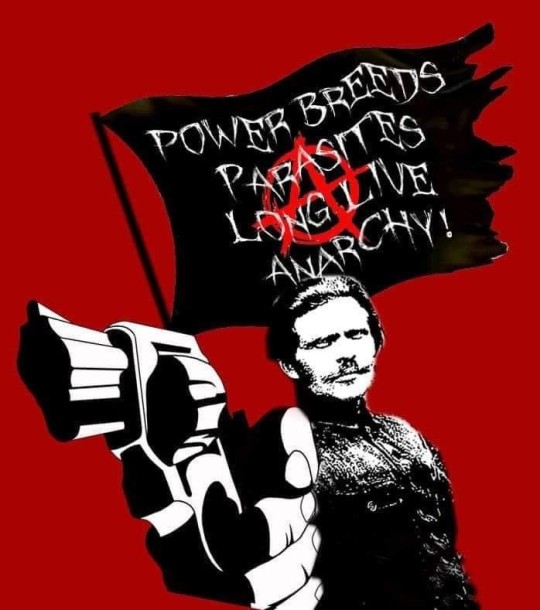
#power breeds parasites#long live anarchy#161#1312#nestor makhno#antifa#antifascist#antifaschistische aktion#class war#antiauthoritarian#antinazi#anti capitalism#anti slavery#antiwork#anticapitalista#anti capitalist love notes#anticapitalistically#eat the rich#eat the fucking rich#acab#all cops are bastards#ausgov#politas#auspol#tasgov#taspol#australia#fuck neoliberals#neoliberal capitalism#anthony albanese
14 notes
·
View notes
Photo

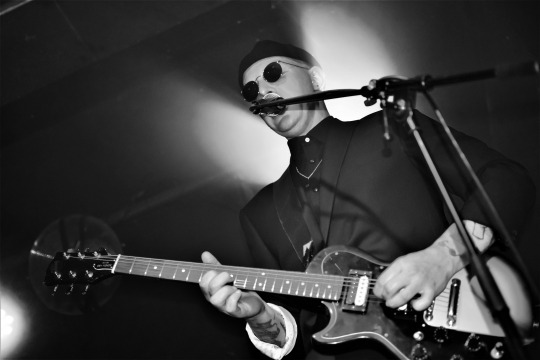
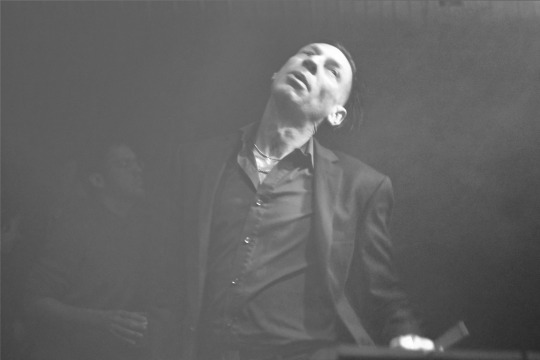
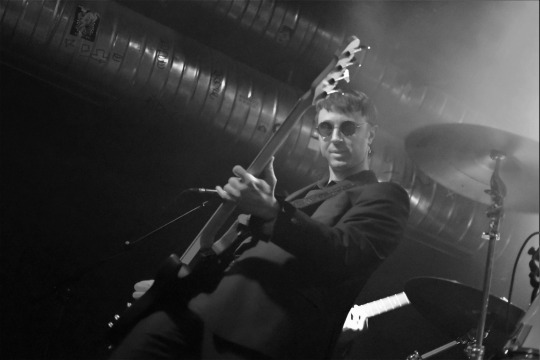
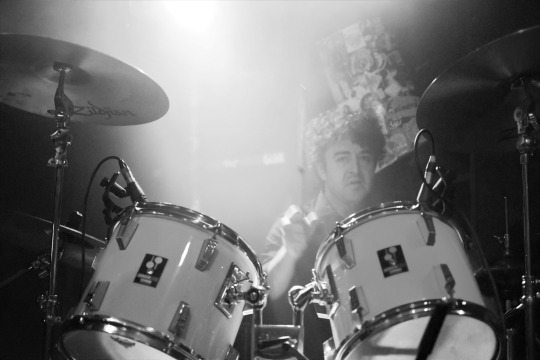




VR Sex @ La Makhno, GE, 25.01.2023
First gig of the year with the amazing VR Sex who came all the way from Los Angeles to play our little Makhno in Geneva! Their show was incredible, the songs from the new album Rough Dimension sound so good live! Thank you VR Sex!!
0 notes
Photo

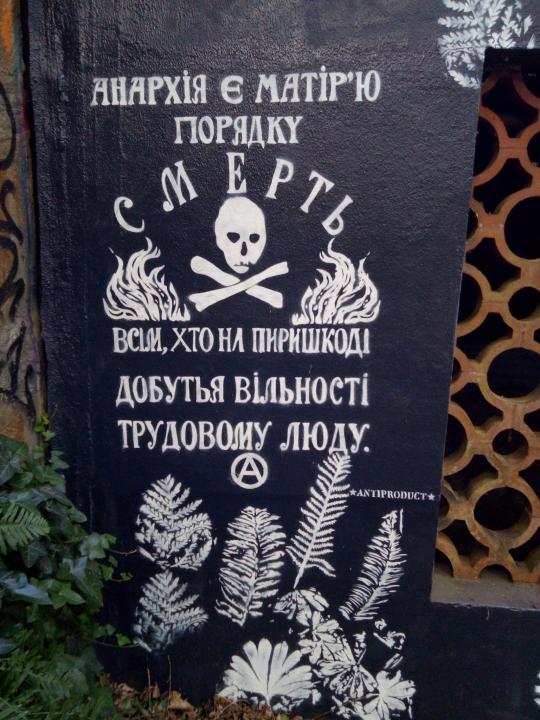
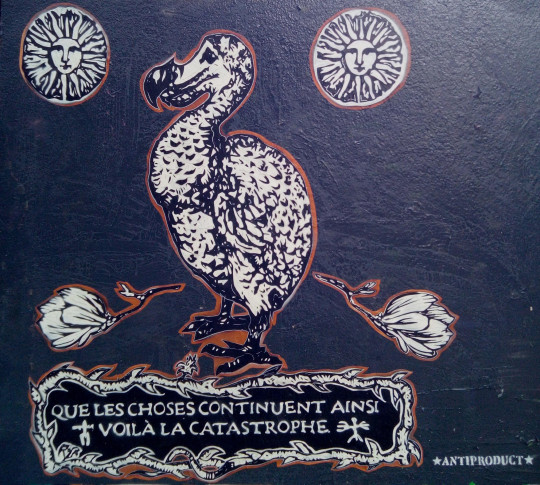

AMARGI ou l'ardoise effacée.
Le premier mot signifiant "liberté" dans toutes les langues humaines connues. -2 700 ans, Sumer.
https://www.monde-diplomatique.fr/mav/173/GRAEBER/62230
#Antiproduct#nantes#streetart#anarchism street art#anarchism#david graeber#Makhnovtchina#makhno#Walter Benjamin
4 notes
·
View notes
Text
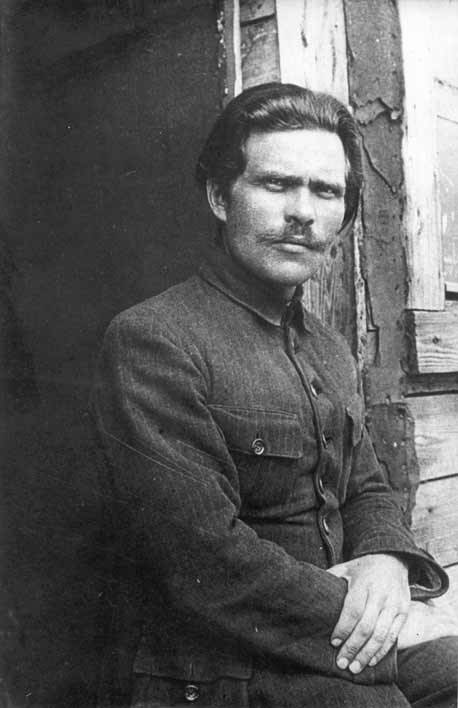

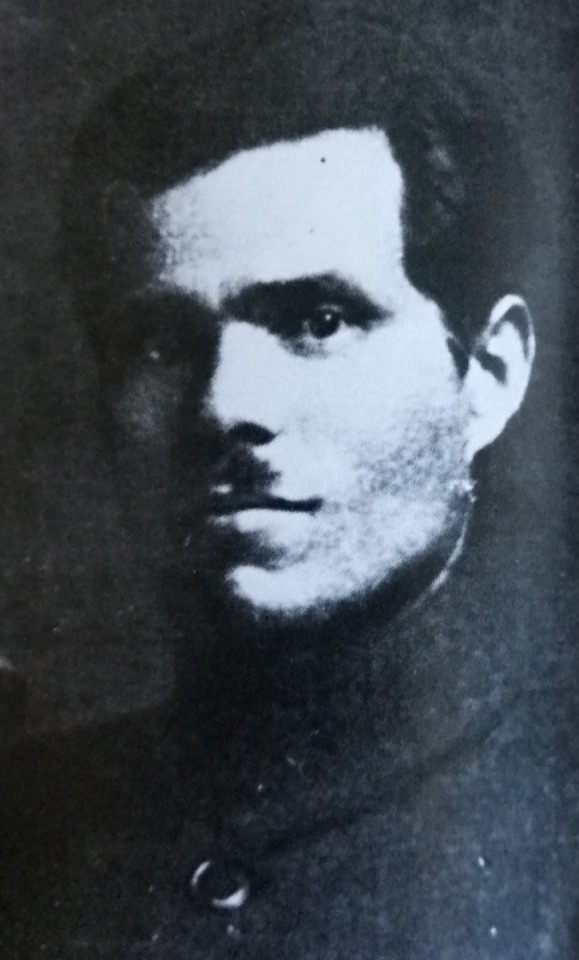
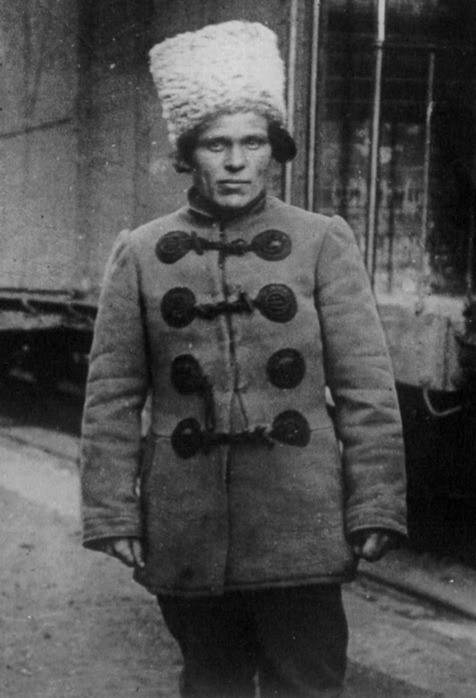

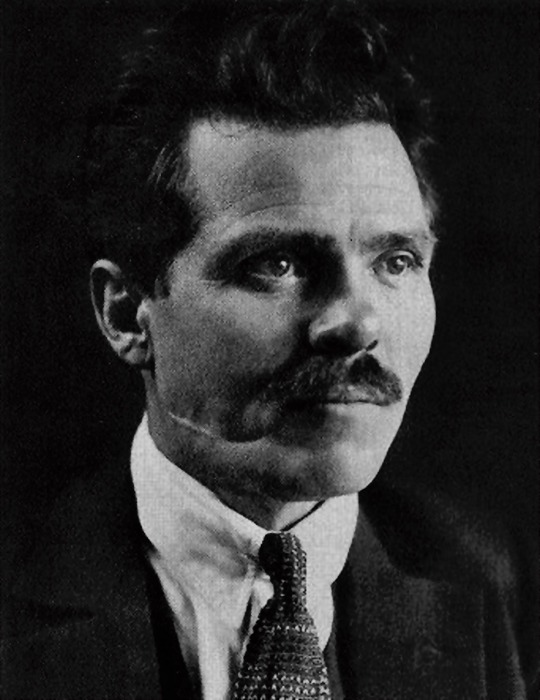
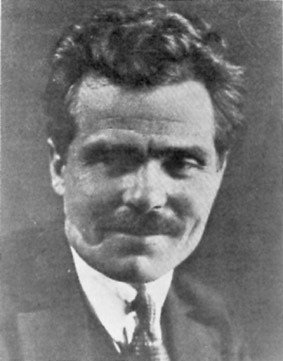
Nestor Makhno (1888-1934), Ukrainian anarchist revolutionary and commander of the Revolutionary Insurgent Army of Ukraine (Makhnovshchina), which was a predominantly peasant phenomenon that grew into a mass social movement. It was initially centered around Makhno's hometown Huliaipole but over the course of the Russian Civil War came to exert a strong influence over large areas of southern Ukraine. Makhno was aggressively opposed to all factions that sought to impose their authority over southern Ukraine, battling in succession the forces of the Ukrainian National Republic, the Central Powers of Germany and Austro-Hungary, the Hetmanate state, the White Army, the Bolshevik Red Army, and other smaller forces led by various Ukrainian atamans. Makhno and his supporters attempted to reorganize social and economic life along anarchist lines, including the establishment of communes on former landed estates, the requisition and egalitarian redistribution of land to the peasants, and the organization of free elections to local soviets (councils) and regional congresses. After an extended period of open resistance against the Red Army, Makhno fled across the Romanian border in August 1921. In exile, Makhno settled in Paris with his wife and daughter, living poverty and remaining threatened with expulsion.
Despite his poor health (caught tuberculosis in prison, had breathing problems, received at least 11 wounds including one in the right foot leaving him limping), he was known to be extremely brave and was nicknamed Batko Makhno ("Father Makhno"). Due to malnutrition, Makhno's tuberculosis worsened to the point that he was hospitalized in March 1934. Operations failed to help and Makhno finally died in the early hours of July 25, 1934.
There's just too much to say about the man (and since English is not my first language, it's a bit difficult) so I highly recommend to read more about him, either on Wikipedia or through Alexandre Skirda's book "Anarchy's Cossack: The Struggle for Free Soviets in the Ukraine 1917-1921". He's truly a fascinating character.
#history#history crushes#submission#Nestor Makhno#ukraine#ukrainian history#anarchist#anarchy#anarchism#october revolution#1900s#1910s
355 notes
·
View notes
